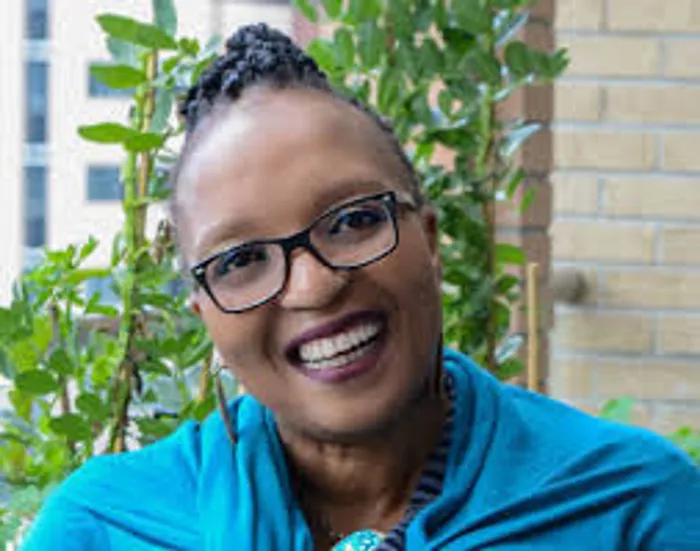lnspired by ordinary women living extraordinary lives

Bulelwa Makalima-Ngewana Bulelwa Makalima-Ngewana
Bulelwa Makalima-Ngewana
Despite thinking of myself as a great optimist, I must confess that during the past months, considering the state of South Africa and the world at large, I’ve had moments when I struggled to see the silver lining. Still, I’m always trying to find good news.
Here, in no particular order, are some of the high points of the past month for me.
On a balmy evening in February, I hosted the talented and very gracious Helen Isibor-Epega and her charming and equally talented husband, Baba Epega, at my home – along with 30 or so guests as part of the Design Indaba series of Dine-Arounds, whereby international speakers are invited into Capetonians’ homes to experience Cape Town hospitality first-hand and to interact with other creatives and like-minded people. An accomplished musician, Helen is the only constant member of creative collective The Venus Bushfires and has the distinction of having written an opera in Nigerian pidgin English – Song Queen: A Pidgin Opera.
Here’s what Helen had to say about our vibrant city: “I think Cape Town has shown the world how people from different backgrounds and people who have been segregated in the past can come together… You see the transformation of the city, of the country … That’s really inspirational, especially as an African to see the positive change that can come about in such a short space.”
Sometimes, as South Africans, we’re so quick to see the negatives that we forget our own accomplishments and achievements.
In addition to Helen’s words, this was brought home to me when I attended a presentation by Brand South Africa in Cape Town recently. Amongst the interesting facts I learnt was that the South African flag is one of the 10 most recognisable in the world, and that according to the Mo Ibrahim Index of African Governance published in 2015, South Africa ranks fourth out of 54 countries overall and scores in the top 10 of the categories examined: sustainable economic opportunity (ranked second); safety and rule of law (seventh); participation and human rights (fourth); and human development (sixth).
Also, I was pleased to learn that regardless of the challenges so many of us face, South Africans remain optimistic about the future and are committed to the country – 74 percent of respondents in the Domestic Perceptions Research study (2015) indicated that they would “continue to live and work in SA regardless of social, economic and political situations”.
Extrapolating the data from this survey, Dr Petrus de Kock, general manager of research at the organisation, wrote in a research note titled “South Africa: A Brand of Optimists?” Findings from Brand SA’s Domestic Perceptions Research: “(It) is evident that South Africans perceive themselves as doers. 86% of respondents indicated that ‘citizens should stand up for what they believe in, not wait for others to take action’.”
This finding was music to my ears, especially since I am constantly urging people to take action in their own backyards, in their communities and in the city at large. We all know that South Africans are becoming increasingly proactive in bringing about change in their own lives and in the lives of others.
The student protests that have flared up around the country during the past year are but one example of this, though I maintain that protests are good as long as they are peaceful and do not impinge upon the rights of others.
An active citizenry is an engaged one and never before have I witnessed civil society, all spheres of government and ordinary South Africans working together to address the issues we face in our society together.
All this comes with the acknowledgement that for many South Africans the pot of gold at the end of the rainbow remains out of reach, and with this in turn comes the determination to achieve true social cohesion and not pay mere lip service to the idea. Currently, many South Africans have begun having uncomfortable conversations about race, inequality and privilege, and while these have the potential to be emotional trigger points, the fact that we are talking about it (such as IOL’s Anti-Racism campaign) bodes very well for a truly integrated nation.
I will of course beat my personal drum about public spaces providing the spaces for these conversations to take place, but I digress.
Last week, on the first Thursday of the month, I was privileged to be included on a panel hosted by the American Corner in Cape Town. Joining me on the panel for Women Changemakers was Ntsiki Biyela, South Africa’s first black female winemaker; Sarah Khan, a New York Times reporter based in Cape Town; and India Baird, a human rights lawyer and founder of Rock Girl, which is responsible for the Rock Girl Safe Space benches found in several spots in Cape Town.
As always, I was inspired by the ways ordinary women are living extraordinary lives and in their own ways are contributing to the betterment of society.
Looking around and interacting with the audience of predominantly young women, some still in their school uniforms, I felt reassured that our future is indeed in safe hands.
Finally, if you’re in Cape Town this Easter, I urge you to visit the Company’s Garden on Monday, March 28, when Stanford Talisman, an a cappella singing group from California’s Stanford University will be performing with the aim of sharing stories through song and connecting with diverse communities.
The performance starts at 1pm; I hope to see you there!